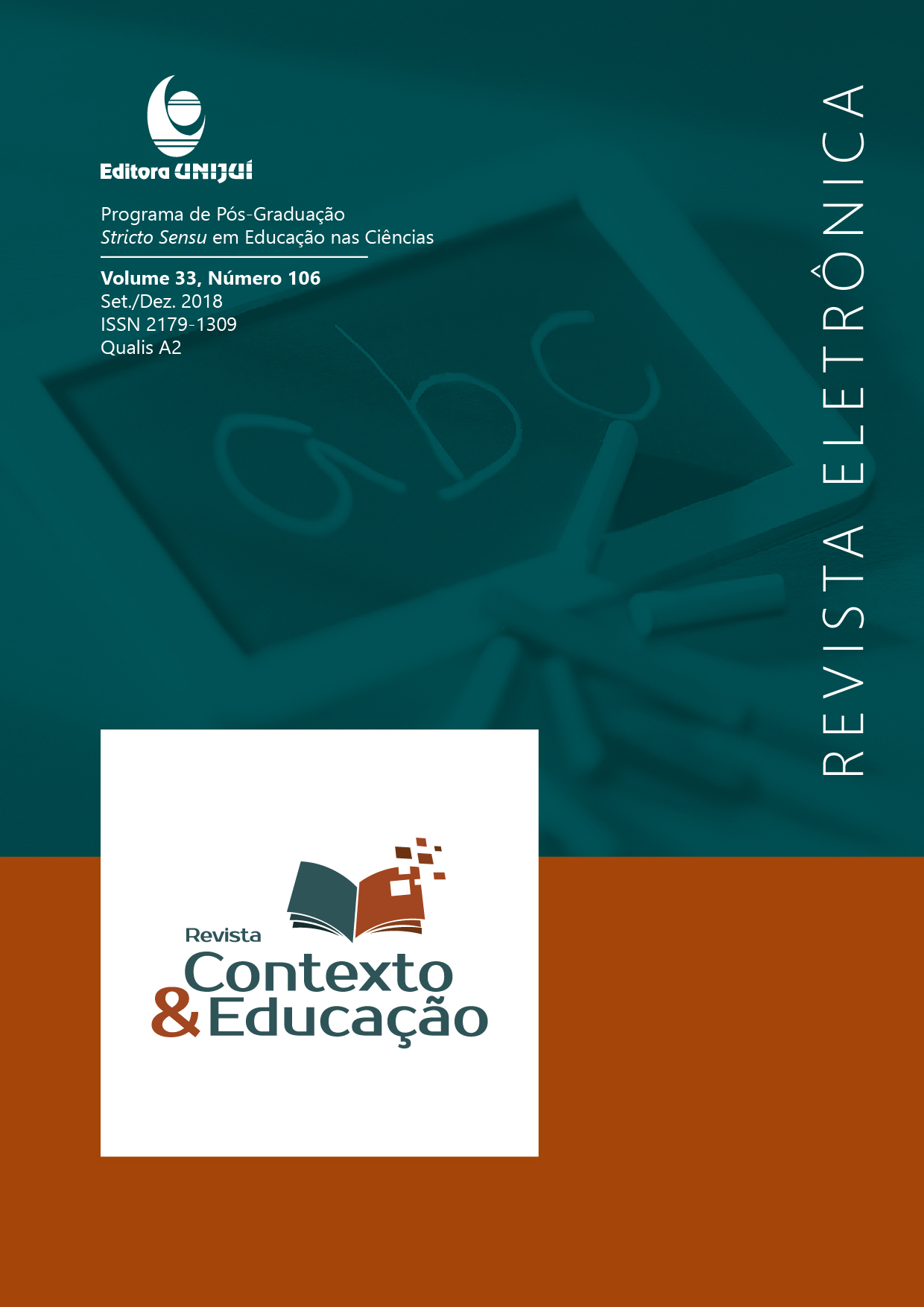INDICADORES PARA IDENTIFICAÇÃO DE ATITUDES TRANSDISCIPLINARES
DOI:
https://doi.org/10.21527/2179-1309.2018.106.6-20Resumen
A transdisciplinaridade é estudada principalmente por filósofos e pesquisadores da área da educação e do ensino de ciências, e há pelo menos uma críticade caráter pragmático que desponta nesses estudos: há poucasindicações depráticas compatíveis com essa atitude. Com o objetivo de compreender as causas dessa lacuna e responder aodesafiode propor soluçõesfoi inicialmente planejada uma investigação. Esse trabalho, porém, mostrou-se especialmente difícil na medida em que não se conheciam indicadores capazes de balizar a identificação das próprias atitudes transdisciplinares. Foi realizada, então, uma investigação preliminar, relatada neste artigo, que buscou identificar indicadores da transdisciplinaridade presentes na literatura sobre o tema. A partir dessa investigação foi elaborada uma lista contendo indicadores objetivos de transdisciplinaridade, em número de onze, depreendidos de produções acadêmicas relevantes, seguindo o critério do número de citações que tais obras receberam. O conhecimento desses indicadores pode instrumentalizar pesquisas voltadas à identificação da transdisciplinaridade ou planejamento de atividadesde caráter transdisciplinar, representando uma base para análise do comportamento pedagógico de professores, permitindo a classificação de suas atitudes, conforme sejam mais ou menos alinhadas às premissas da transdisciplinaridade.
Descargas
Publicado
Cómo citar
Número
Sección
Licencia
Ao publicar na Revista Contexto & Educação, os autores concordam com os seguintes termos:
Os trabalhos seguem a licença Creative Commons Atribuição 4.0 Internacional (CC BY 4.0), que permite:
Compartilhar — copiar e redistribuir o material em qualquer meio ou formato;
Adaptar — remixar, transformar e criar a partir do material para qualquer fim, inclusive comercial.
Essas permissões são irrevogáveis, desde que respeitados os seguintes termos:
Atribuição — os autores devem ser devidamente creditados, com link para a licença e indicação de eventuais alterações realizadas.
Sem restrições adicionais — não podem ser aplicadas condições legais ou tecnológicas que restrinjam o uso permitido pela licença.
Avisos:
A licença não se aplica a elementos em domínio público ou cobertos por exceções legais.
A licença não garante todos os direitos necessários para usos específicos (ex.: direitos de imagem, privacidade ou morais).
A revista não se responsabiliza pelas opiniões expressas nos artigos, que são de exclusiva responsabilidade dos autores. O Editor, com o apoio do Comitê Editorial, reserva-se o direito de sugerir ou solicitar modificações quando necessário.
Somente serão aceitos artigos científicos originais, com resultados de pesquisas de interesse que não tenham sido publicados nem submetidos simultaneamente a outro periódico com o mesmo objetivo.
A menção a marcas comerciais ou produtos específicos destina-se apenas à identificação, sem qualquer vínculo promocional por parte dos autores ou da revista.
Contrato de Licença (para artigos publicados a partir de outubro/2025): Os autores mantém os direitos autorais sobre seu artigo, e concedem a Revista Contexto & Educação o direito de primeira publicação.


